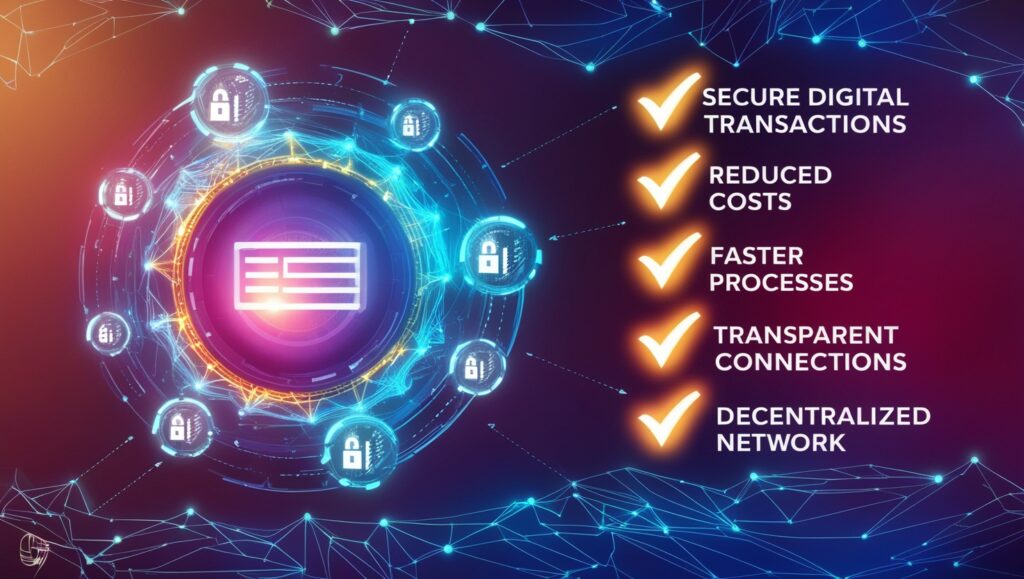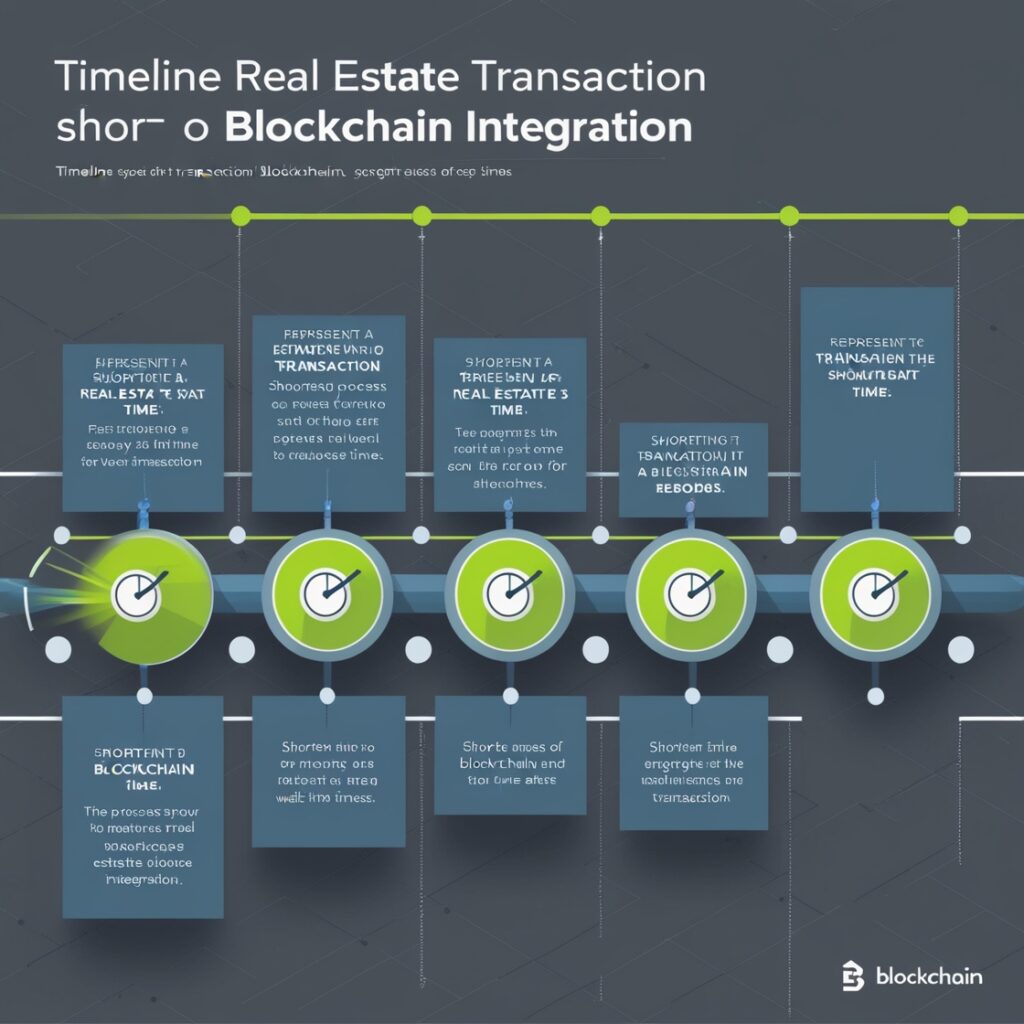Table of Contents

cryptocurrency technology is quickly moving beyond cryptocurrency and making waves across industries. One of the sectors feeling its potential is real estate. Known for being outdated and riddled with inefficiencies, real estate is now ripe for transformation. cryptocurrency offers solutions to long-standing problems, streamlining processes and making transactions more secure and transparent.
Understanding cryptocurrency Technology
To see why blockchain is such a game-changer for real estate, it’s essential to understand how it works. cryptocurrency isn’t just a buzzword; it’s a practical technology that redefines trust in digital transactions.
Key Features of cryptocurrency
cryptocurrency stands on three pillars: immutability, transparency, and decentralization. These features directly address pain points in real estate.
- Immutability: Once a transaction is recorded on a cryptocurrency, it can’t be altered. This ensures the integrity of records, making it harder for fraud or manipulation to occur.
- Transparency: All participants in a cryptocurrency network can view the same data in real time. This shared visibility reduces misunderstandings and miscommunication.
- Decentralization: Data isn’t stored in one location. Instead, it’s distributed across multiple nodes, which ensures no single party controls the entire system.
How cryptocurrency Works
cryptocurrency is essentially a digital ledger. It records transactions in “blocks” that are linked together in chronological order. Here’s the breakdown:
- A transaction begins when two parties agree to terms.
- That transaction is bundled into a block with others.
- The block is validated by the network and added to the chain, creating a permanent and secure record.
This process eliminates middlemen, cuts costs, and improves accuracy.

The Current State of the Real Estate Industry
The real estate market still operates on outdated systems. From cumbersome paperwork to hidden fees, inefficiencies are rampant. Technology has tried to fill gaps, but it has its limits.
Challenges in Real Estate Transactions
Buying and selling property isn’t simple. Traditional processes come with plenty of challenges:
- Fraud: Fake property listings and forged documents are still common problems.
- Slow processes: Transactions take weeks or even months. Approvals, bank clearances, and paperwork drag things out.
- Lack of transparency: Buyers and sellers rarely have full visibility into the process, leading to mistrust.
Impact of Technology on Real Estate
While real estate has embraced tools like listing platforms and online document signing, the underlying system hasn’t changed much. These tools help but don’t address the root of inefficiencies.

How Blockchain is Changing Real Estate
cryptocurrency steps in where traditional approaches fail. By automating tasks, increasing transparency, and enabling new concepts like tokenization, cryptocurrency has the potential to reshape the industry.
Smart Contracts
Smart contracts are self-executing agreements coded into a cryptocurrency. They simplify transactions by automatically enforcing terms. For example:
- When a buyer sends funds, the smart contract releases the property title.
- Payments, title transfers, and other steps happen instantly without needing lawyers or brokers.
This not only saves time but also reduces costs by cutting out intermediaries. Plus, no one can tamper with a smart contract once it’s on the cryptocurrency
Tokenization of Real Estate Assets
Traditional real estate ownership can be rigid.cryptocurrency changes that through tokenization, which divides property into digital shares.
- Instead of buying a whole building, investors purchase tokens representing fractional ownership.
- This makes large investments more accessible and increases liquidity.
Imagine owning a portion of a luxury property with the click of a button. Tokenization also opens real estate markets to global investors.
Increased Transparency and Security
Blockchain leads to an unparalleled level of transparency. Each transaction is visible to all stakeholders, leaving no room for fraud or hidden fees. Properties can also have a digital history record, storing all past transactions, repairs, or ownership changes on the blockchain.
This transparency builds trust between parties. Additionally, security is enhanced because data stored on a blockchain is virtually tamper-proof.

Real-World Applications and Case Studies
Blockchain’s benefits are more than theoretical. Several companies and projects are actively using it to solve real-world problems in the real estate sector.
Successful Blockchain Implementations
- Propy: A pioneer in blockchain real estate, Propy enables property transactions using blockchain technology. Their platform has successfully facilitated sales across the globe, proving its scalability.
- RealT: This platform focuses on tokenized real estate. Investors can buy tokens representing fractional ownership in US properties, earning rental income directly through cryptocurrency wallets.
- Ubitquity: Specializing in title and deed management, Ubitquity uses blockchain to create secure, blockchain-based title records that eliminate common errors.
These examples show that blockchain isn’t just an idea; it’s already reshaping real estate transactions.

Future Trends in Blockchain and Real Estate
The possibilities for blockchain in real estate are just beginning. Here’s what the future might hold:
- Wider adoption of tokenization: More companies will tokenize real estate, allowing small-scale investors to enter the market.
- Global decentralized marketplaces: Entire marketplaces for buying, selling, or renting properties could operate on blockchain networks.
- Blockchain-based mortgages: As crypto adoption grows, blockchain could disrupt the mortgage industry by making the loan approval process faster and more affordable.
With advancements, blockchain may eliminate many of the barriers keeping certain groups out of the real estate market.
Conclusion
The real estate industry is overdue for change, and blockchain offers the solutions it needs. By automating processes, adding transparency, and enabling new concepts like fractional ownership, blockchain makes real estate transactions faster, cheaper, and more secure.
As companies continue to innovate and real-world applications grow, the technology’s impact will become even clearer. Blockchain isn’t just transforming real estate—it’s redefining how we approach ownership, trust, and investment. Whether you’re a buyer, seller, or investor, the future of real estate is looking brighter than ever.
